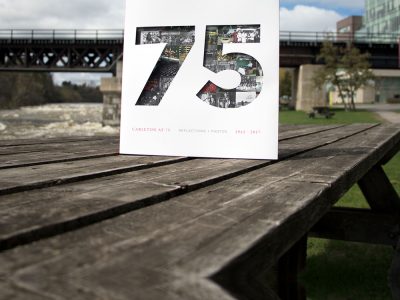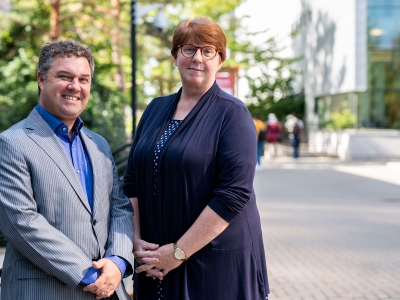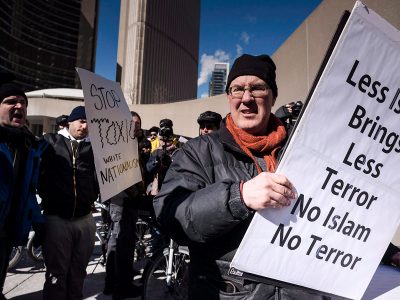By Tyrone Burke
When we see discrimination happening, we have a responsibility to stop it. But how? Silence may be complicity, but anger often does not achieve the desired result.
In Carleton University’s Sociology class, Addressing Race, Gender and Sexuality: Through the Arts, students are learning how to effectively advocate against anti-Black racism, sexism and anti-2SLGBTQ discrimination. Taught by Warren Clarke, a PhD candidate in the Department of Sociology and Anthropology, the course teaches de-escalation through the Theatre of the Oppressed, a dramatic technique developed by Brazilian theatre practitioner and political activist, Augusto Boal.
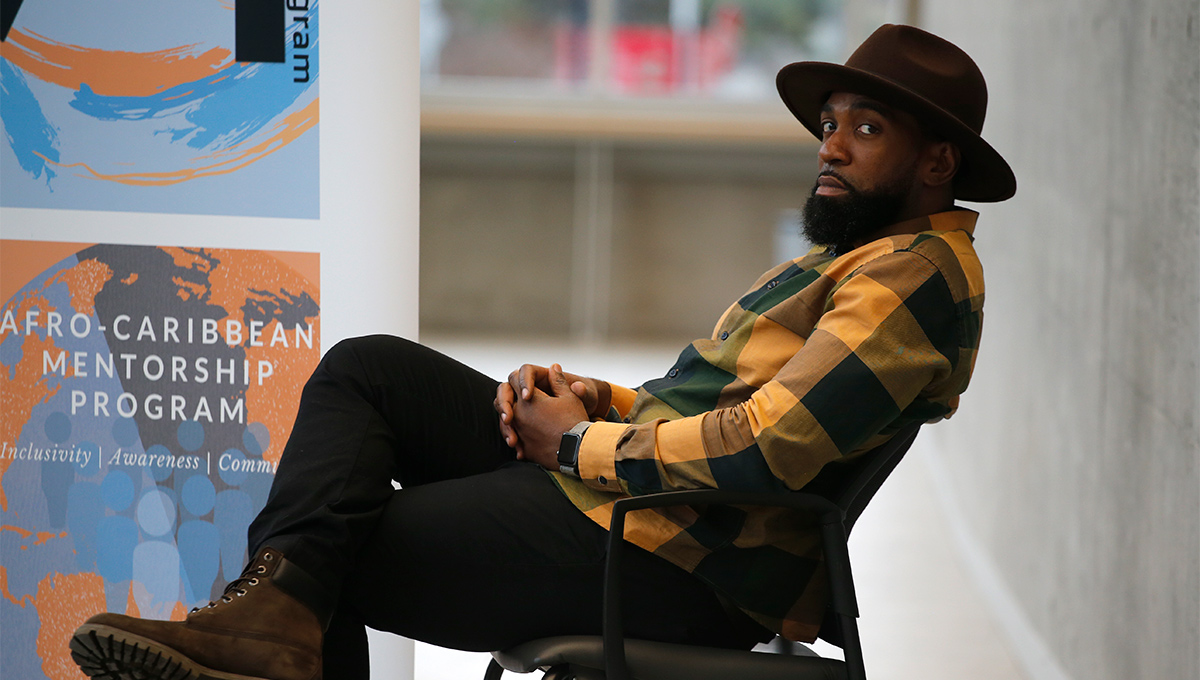
PhD Candidate Warren Clarke
“The world is not perfect, but we can add positive value to it by learning these concepts,” says Clarke.
“We have all seen moments where people are being abused and no one (present) knows how to use their voice to de-escalate things. This course teaches that skill.”
The Theatre of the Oppressed approach stages an instance of oppression, and prompts the audience for possible interventions that could make the scenario anti-oppressive. Performers then dramatize the suggestions, with the ultimate aim of identifying approaches that could be effective in stopping the unfolding discrimination—and hopefully even preventing similar occurrences in the future.
“Even in the age of social media, with the heightened awareness of discrimination, a non-racialized person can be ignorant of how their actions can come off as anti-Black racism,” says Clarke.
The third-year course begins with university classroom work before shifting to a theatrical collaboration with local high school students and their drama teacher.
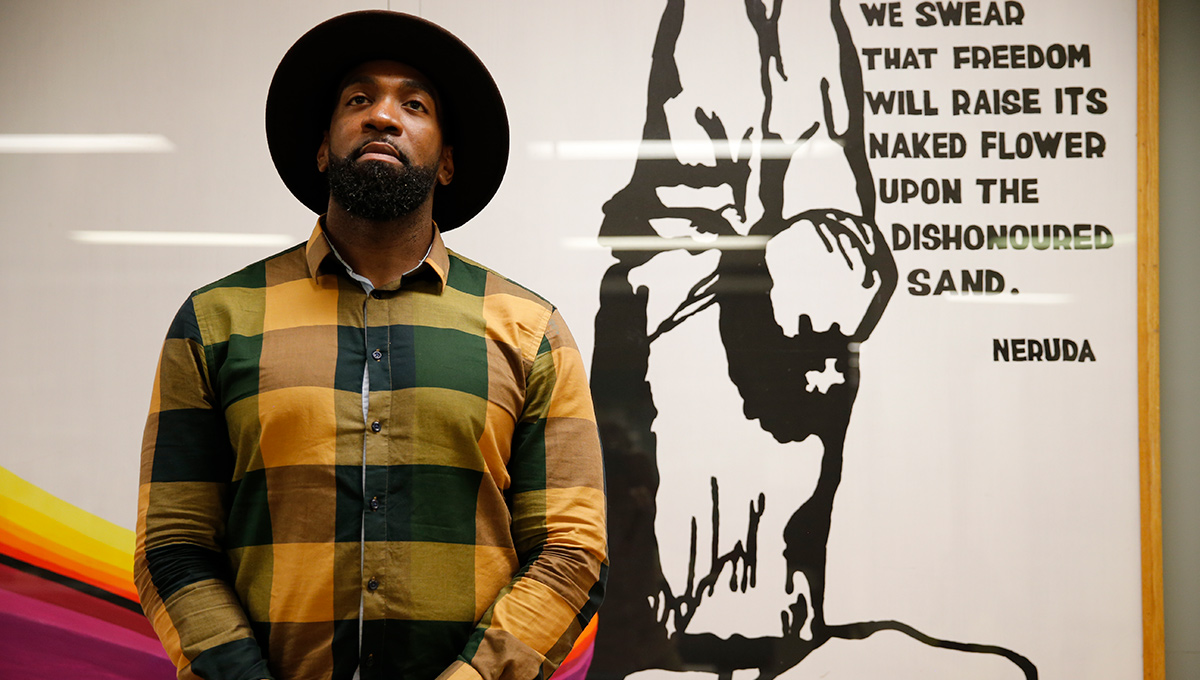
Mentoring High School Students
“The first four weeks introduce the theoretical framework,” Clarke says.
“We look at race. We look at the city, intersectionality, sexuality, and other social intersections. We look at these things, so that the learners in the university space have a foundation that they can share with the high school students. It adds to what they already know about these topics.”
The course teaches the university and high school students the foundations of anti-racist and anti-oppression frameworks, as well as approaches to combat racial discrimination. Along with the material presented to undergraduates, Clarke employs phenomenology as the sociological theoretical framework—the study of human experience, the notion that human history shapes our experience and the way things present themselves to us in—and through—experience.
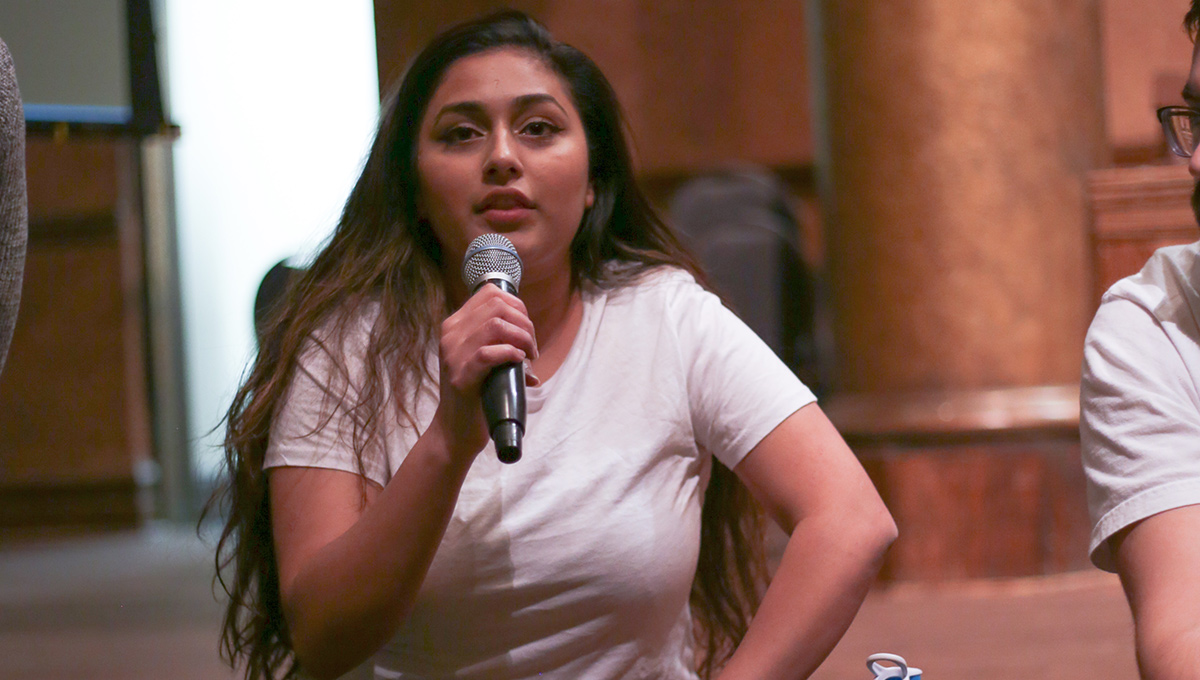
Undergraduates in the class are encouraged to think about gender, race, and sexuality from the differing social intersections—social class, age, and ability. Instead of approaching these ideas as abstractions, this course encourages students to be aware of the lived experiences of young Canadians who encounter social barriers that negatively impact their livelihood.
Between the Carleton undergraduates and their high school counterparts, students collaborate on one performance focused on anti-Black racism, and another on anti-2SLGBTQ discrimination. The mentorship aspect of the course is mutually beneficial. It provides racialized high school students —and young Afro-Caribbean Black (ACB) people in particular—with exposure to other racialized people who are succeeding as university students and instructors.
For university students, it provides practical experience in social justice advocacy that could help advance their career aims.
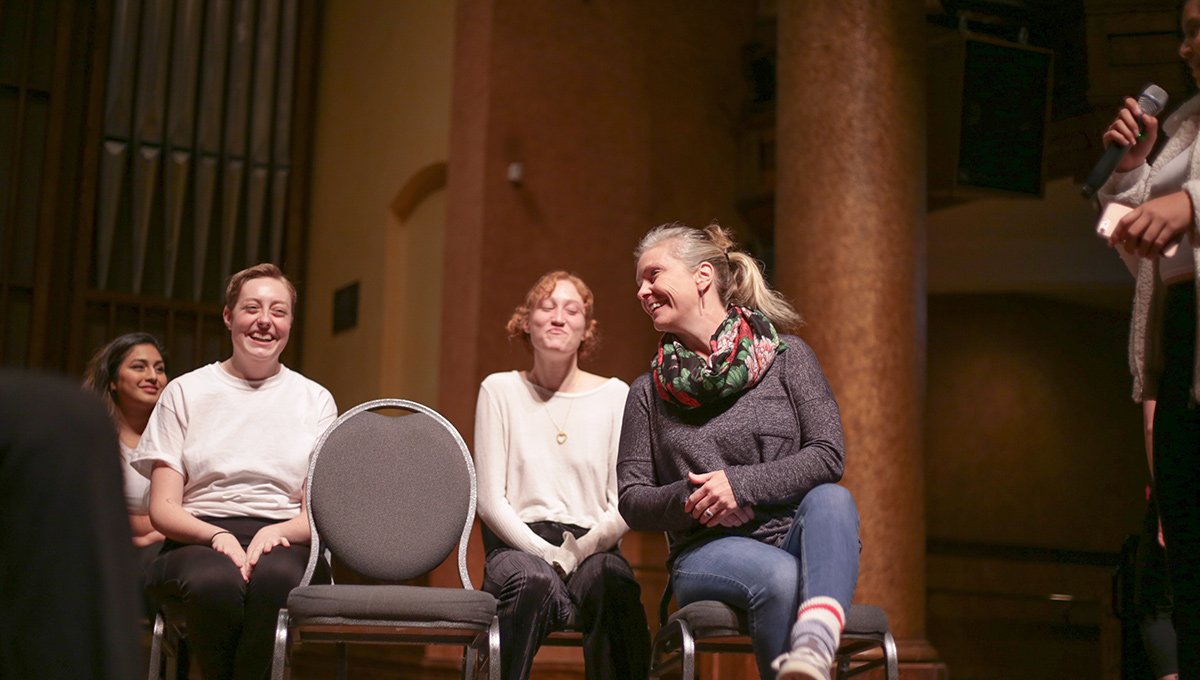
Producing Podcasts and Videos
“If students are looking to work with youth or the community in the future, this is a good way to start,” says Clarke.
“It is an opportunity for university students to hone in on those skills, to mentor younger students and exchange knowledge.”
In past years, performances were staged at the Carleton Dominion-Chalmers Centre in downtown Ottawa, and they have focused on unwanted hair touching, trans bathroom discrimination and racial stereotypes. However, the pandemic forced course work online and this year students used the course’s theoretical framework to create podcasts and YouTube videos.
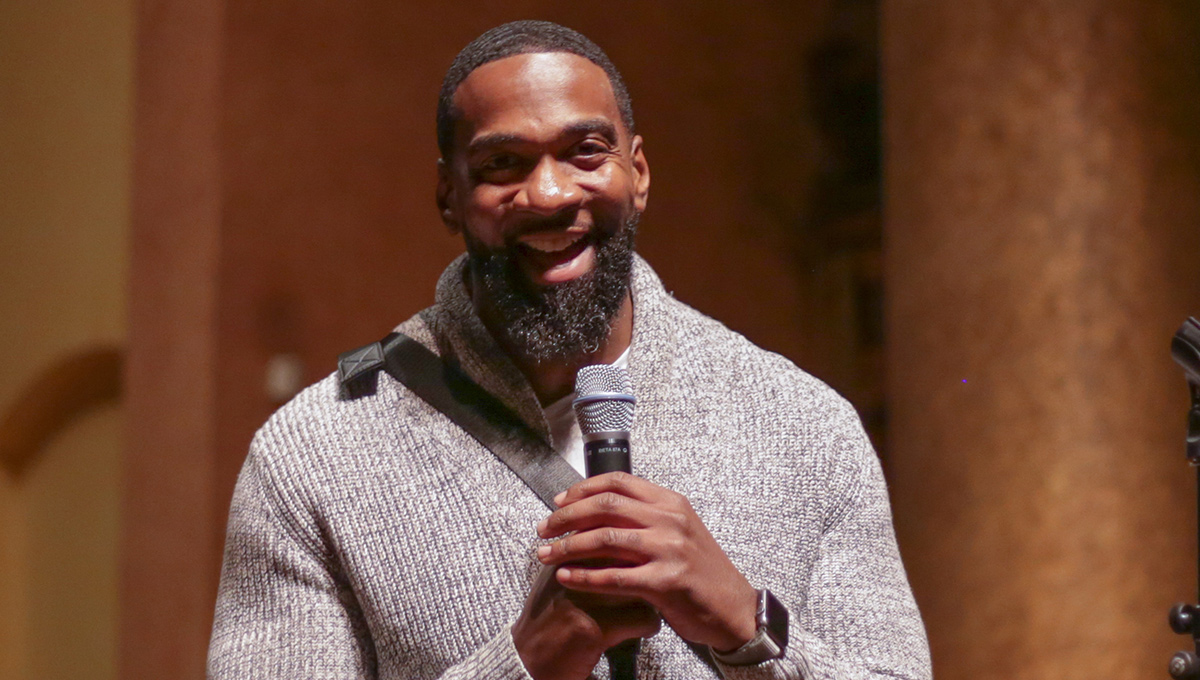
Though the medium has changed, the aim remained the same: to develop the skills needed to take anti-oppression beyond the classroom.
“Courses like this encourage young people to be more aware of anti-Black racism at an early age, and also to learn how to advocate against it,” says Clarke.
“There are times where we have conversations about social justice issues, and it stays in one room or between a few people. This course is looking to mobilize these ideas, these thoughts, and this approach.
“It teaches how social justice can be approached through theatre and public advocacy—and that is important—but the most important reason we are doing this is to learn how to connect the foundations of this course to the broader community.”
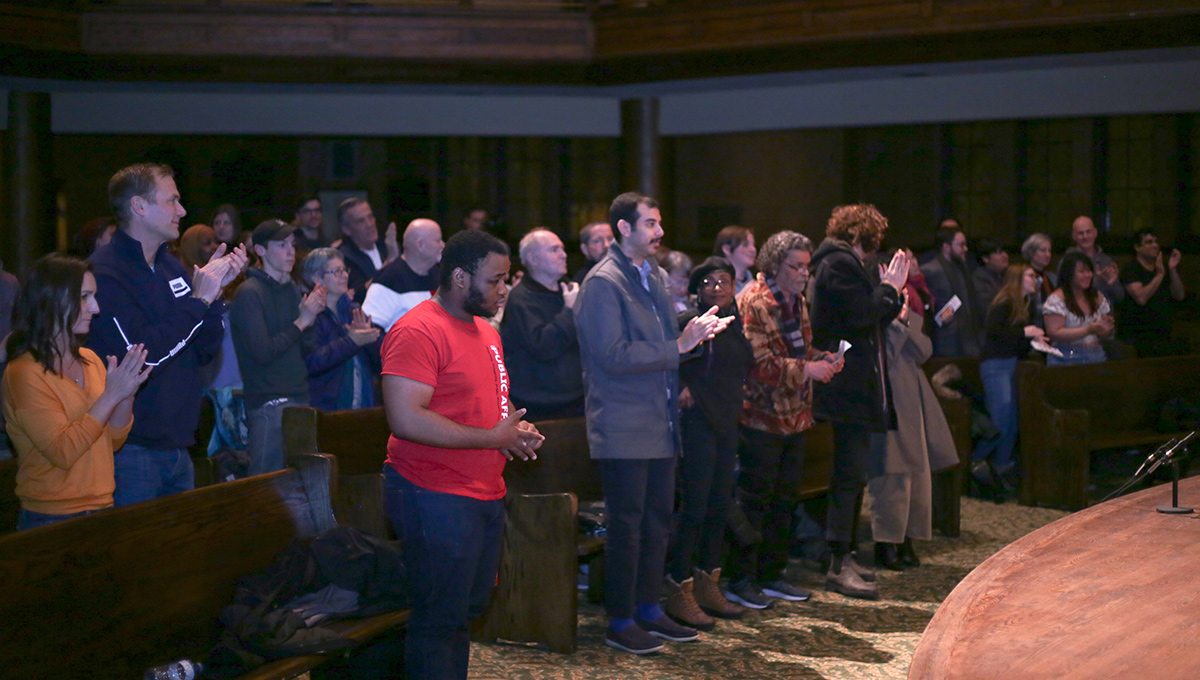
Thursday, December 17, 2020 in New/Unique Programs, Sociology and Anthropology
Share: Twitter, Facebook

